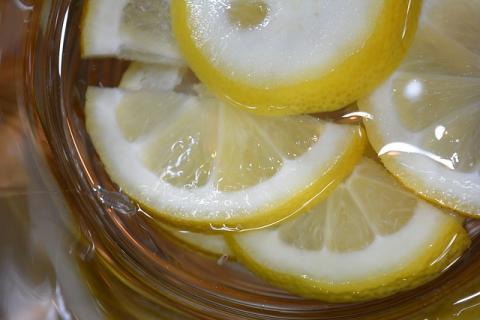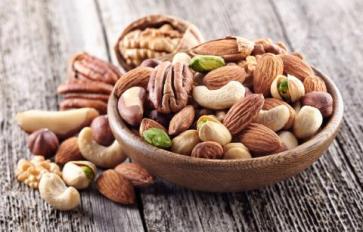
When life gives you lemons, have them, for they burst with vitality…
They smell great, are a great addition to salads and drinks, are very healthy, but – and that’s a big but – they are hardly the world’s best tasting food. Known and primarily used for their sour juice and bitter-sour zest, lemons can really add a zing to your daily diet.
Lemon, nutritionally speaking
The USDA National Nutrient Database lists an average, 2-inch sized, zest-less lemon to have 17 calories and over 50% of the Recommended Dietary Allowance of vitamin C. With the juice of two lemons, you’ve just achieved your daily vitamin C intake goal. Lemons also have small amounts of protein and carbohydrates, as well as vitamins and minerals, including some of the vitamin B complex, calcium, iron, magnesium, phosphorus, copper, manganese and potassium.
The best lemons
The thing about lemons is that you need to buy them at their peak juiciness and basically at their yellowest. Buy lemons that are firm – you can actually test the juiciness of a lemon by pressing your nail lightly on the skin. If you feel a slight ‘crunch’ then the lemon is good, and if the lemon feels too spongy or too hard, then you’re not going to get much juice from it. Store lemons at room temperature, away from sunlight and use them up within a week. If you need them to stay longer, then they’ll keep for almost four weeks in the refrigerator crisper or vegetable tray.
Is there anyone who shouldn’t have lemons?
While lemon or citrus fruit allergies are relatively rare, there have been cases of people falling prey to it – symptoms usually include itching, swelling and anaphylaxis. Also, people with GERD (gastrointestinal reflux disorder) may have an adverse reaction to lemons.
Why are lemons healthy?
For something this sour, lemons sure have plenty of ‘sweet’ healthiness for our bodies…
- The first and foremost reason for lemons being healthy is the vitamin C in them, which basically increases the body’s natural immunity and ability to fight against colds and seasonal infections.
- Vitamin C is an anti-oxidant and is what neutralizes the free radicals in our body that cause internal damage to organs and cells. While nothing can stop ageing, anti-oxidants like vitamin C help slow down the process, thereby promoting youthfulness and longevity.
- The very same anti-oxidant properties of vitamin C also stave off artery plaque and build-up, thereby preventing blood pressure problems and keeping the heart healthier.
- Lemons are a great source of anti-oxidants, which in turn have anti-cancer properties. One of the flavonoids in lemons and limes, called flavonol glycosides, have shown to stop cell division in many cancers.
- These same flavonoids also have antibiotic properties. The effect was seen in villages in West Africa so often plagued with cholera. The addition of lime juice along with their midday meal was shown to stave off the disease.
- Some other effects of lemons/limes that are being studied are their ability to affect a cell’s decision to reproduce by mitosis (cell replication by dividing into two) or to die (apoptosis) instead. Lime/lemon juice also affects the activities of special immune cells called monocytes.
- Certain compounds in lemons/limes called limonoids stay in the body the longest and have massive anti-cancer fighting properties as they stop the cancer cells from proliferating.
- Lemons have also shown to prevent inflammatory polyarthritis – involving two or more joints by keeping the joints limber for longer.
- Remember that while lemons may be acidic, once ingested they turn alkaline, thereby reducing the body’s acid levels and balancing the body’s pH levels. Most holistic healers would agree that the body’s acidity levels are the gateway to diseases and disorders – lemons aid in maintaining optimum pH levels in the body.
Eating lemons
They do say that when life hands you lemons, you should make lemonade. So yes, that’s a great way to have lemons. There are also certain varieties of sweet lemons and limes that you can juice and drink. Many people also begin their day with drinking lemon water and the benefits of the same are manifold. And frankly, while lemon juice may not sound very palatable, it’s healthy and some things you need to eat just for health. You can always add lemons to anything and everything – wedges of lemon can flavor meats and main courses while the juice can be drizzled over sauces, chutneys, salads and added in your drink. And in case you don’t like lemonade, make some Limóncello instead…
Have some interesting lemony snickets, err, recipes to share with us? Do so in the comments section below…








